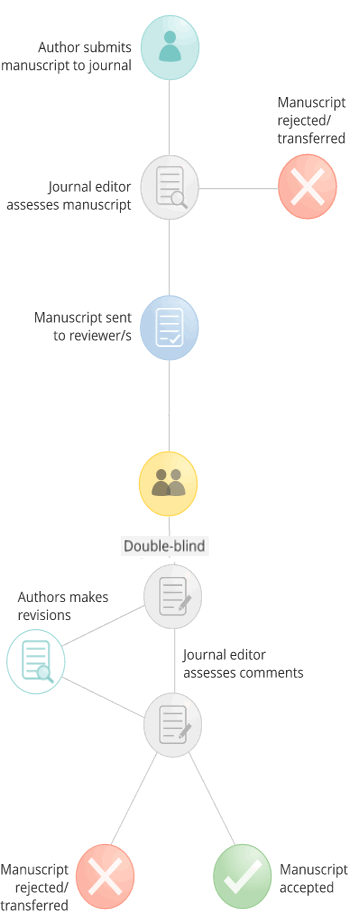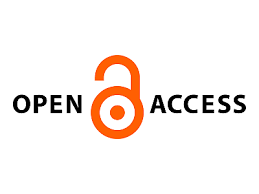For Reviewers
For the reviewers
-
perface
-
Does it really match your area of expertise?
-
Are you able to manage specified deadlines?
-
Double-blind peer review
-
The duties of the arbitrators
-
Preparing a detailed report
-
Join us: as a reviewer
Preface
All articles submitted to the Journal of Economic Growth and Entrepreneurship are reviewed by at least two qualified external reviewers in the essay topic area. The authors and reviewers remain anonymous during this process. Reviewers' recommendations are taken into account by the editors when determining publication and review.
If the article is deemed suitable for submission to peer review, it will be reviewed by members of the journal's International Editorial Board and/or other professionals of equal reputation. These individuals are hired by the editorial team based on their expertise and standing. Reviewers are required to disclose a potential conflict of interest that may affect their submission of an unbiased review of the article.
Poor papers submitted that do not meet the editing requirements can be returned without review.
1.Does it truly match your area of expertise?
The editor who contacted you does not know the specifics of your position, but may only be aware of your job in a wider sense. Just accept an invitation to study the article if you are qualified.
Please keep your CV up to date with appropriate keywords and institutional information to help the publisher pair you with the correct paper.
2.Are you able to manage the deadlines given?
Deadlines differ by publication for reviews. When you are invited to check it, you will be told of the deadline. Please let the Editor know within a few days that you have received your submission. Timeliness is an important component of the review process, and failure to respond to an invitation will greatly improve review time for articles. There are no consequences for refusing a summary invitation.
If you think it would take you longer than usual to finish the analysis, please email the Editor to address the matter. The Editor may ask you for an alternative reviewer to recommend, or may be able to wait a little longer (e.g., if the paper is highly specialized and reviewers are difficult to find). As a general guideline, if you know you will not be able to complete a review within the time frame requested, you should decline to review the paper.
3.Double-blind peer review
The writers' names are not identified by the reviewers, and the authors do not know who read their paper. The author and reviewer's respective names remain secret. Please do not mention your name in the text of your analysis to help protect the credibility of this phase.

4.Duties of Reviewers
It is the duty of reviewers to act immediately, conform to the guidelines for conducting a document, and apply it in a timely manner. Failure to do so destroys the mechanism of scrutiny. Every effort to complete the review within the time requested should be made. For more info, Please see Duties of Reviewers for more details.
5.Preparing a report
5.1. Format
Follow the instructions from the journals for writing and posting the review. Use the tools supplied by the journal if a specific format or scoring rubric is required. In your review, be objective and constructive, providing feedback that will assist the authors to improve their manuscript. For example, to assist editors in their evaluation, be specific in your critique and provide supporting evidence with appropriate references to substantiate general statements. Be professional and refrain from being hostile or inflammatory and from making personal comments or unfounded accusations that are libellous or derogatory.
5.2. Appropriate feedback
Bear in mind that a fair, honest, and unbiased evaluation of the strengths and weaknesses of the manuscript is required by the editor. We allow reviewers to provide the editor with confidential comments as well as comments that the authors will read. A recommendation to accept/revise/reject can also be requested by the journal; any recommendation should be consistent with the comments provided in the review. If the entire manuscript has not been reviewed by you, indicate which aspects of the manuscript you have evaluated. Ensure that your comments and editor's suggestions are consistent with your authors' report; most of the feedback should be put in the report that the authors will see. The editor's confidential comments should not be a place for denigration or false accusations, made in the knowledge that your comments will not be seen by the authors.
5.3. Language and style
Remember that it is the paper of the authors, so if it is basically sound and clear, don't try to rewrite it to your own preferred style; suggestions for changes that improve clarity are, however, important. In addition, be aware of the sensitivities that are due to the writers writing in a language that is not their first or most proficient language surrounding language problems, and phrase the feedback appropriately and with due respect.
5.4. Suggestions for further work
The peer reviewer's job is to comment on the consistency and rigour of the work they are receiving. If, due to missed analysis, the work is not straightforward, the reviewer may comment and explain what additional analyses will clarify the submitted study. The reviewer's task is not to expand the work beyond its present reach. To endorse arguments made in the manuscript under review, make clear which (if any) proposed additional inquiries are necessary and which would only improve or extend the work.
5.5. Accountability
If you have permission from the journal to engage another person, write the report by yourself. Refrain from making unfair critical remarks or including unjustified critiques of the work of any rivals mentioned in the manuscript. Refrain from recommending that writers include citations to your (or the) work of an associate simply to increase the amount of citations or to increase the popularity of the work of your or your associate; recommendations must be focused on scholarly or technical grounds that are legitimate. Do not intentionally extend the review process, either by delaying the submission of your review or by asking the journal or author for needless supplementary detail.












